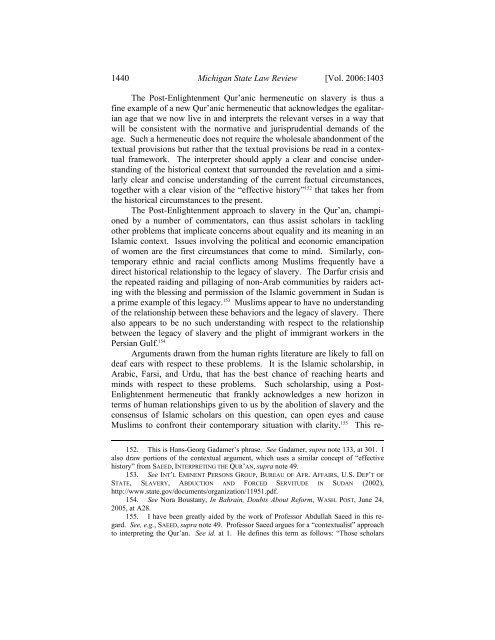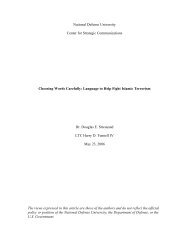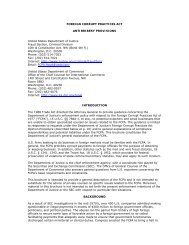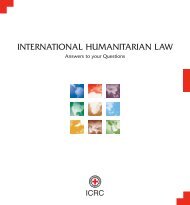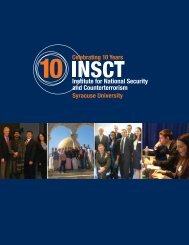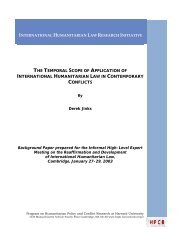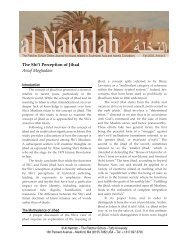some reflection on post-enlightenment qur'anic hermeneutics
some reflection on post-enlightenment qur'anic hermeneutics
some reflection on post-enlightenment qur'anic hermeneutics
You also want an ePaper? Increase the reach of your titles
YUMPU automatically turns print PDFs into web optimized ePapers that Google loves.
1440 Michigan State Law Review [Vol. 2006:1403The Post-Enlightenment Qur’anic hermeneutic <strong>on</strong> slavery is thus afine example of a new Qur’anic hermeneutic that acknowledges the egalitarianage that we now live in and interprets the relevant verses in a way thatwill be c<strong>on</strong>sistent with the normative and jurisprudential demands of theage. Such a hermeneutic does not require the wholesale aband<strong>on</strong>ment of thetextual provisi<strong>on</strong>s but rather that the textual provisi<strong>on</strong>s be read in a c<strong>on</strong>textualframework. The interpreter should apply a clear and c<strong>on</strong>cise understandingof the historical c<strong>on</strong>text that surrounded the revelati<strong>on</strong> and a similarlyclear and c<strong>on</strong>cise understanding of the current factual circumstances,together with a clear visi<strong>on</strong> of the “effective history” 152 that takes her fromthe historical circumstances to the present.The Post-Enlightenment approach to slavery in the Qur’an, champi<strong>on</strong>edby a number of commentators, can thus assist scholars in tacklingother problems that implicate c<strong>on</strong>cerns about equality and its meaning in anIslamic c<strong>on</strong>text. Issues involving the political and ec<strong>on</strong>omic emancipati<strong>on</strong>of women are the first circumstances that come to mind. Similarly, c<strong>on</strong>temporaryethnic and racial c<strong>on</strong>flicts am<strong>on</strong>g Muslims frequently have adirect historical relati<strong>on</strong>ship to the legacy of slavery. The Darfur crisis andthe repeated raiding and pillaging of n<strong>on</strong>-Arab communities by raiders actingwith the blessing and permissi<strong>on</strong> of the Islamic government in Sudan isa prime example of this legacy. 153 Muslims appear to have no understandingof the relati<strong>on</strong>ship between these behaviors and the legacy of slavery. Therealso appears to be no such understanding with respect to the relati<strong>on</strong>shipbetween the legacy of slavery and the plight of immigrant workers in thePersian Gulf. 154Arguments drawn from the human rights literature are likely to fall <strong>on</strong>deaf ears with respect to these problems. It is the Islamic scholarship, inArabic, Farsi, and Urdu, that has the best chance of reaching hearts andminds with respect to these problems. Such scholarship, using a Post-Enlightenment hermeneutic that frankly acknowledges a new horiz<strong>on</strong> interms of human relati<strong>on</strong>ships given to us by the aboliti<strong>on</strong> of slavery and thec<strong>on</strong>sensus of Islamic scholars <strong>on</strong> this questi<strong>on</strong>, can open eyes and causeMuslims to c<strong>on</strong>fr<strong>on</strong>t their c<strong>on</strong>temporary situati<strong>on</strong> with clarity. 155 This re-152. This is Hans-Georg Gadamer’s phrase. See Gadamer, supra note 133, at 301. Ialso draw porti<strong>on</strong>s of the c<strong>on</strong>textual argument, which uses a similar c<strong>on</strong>cept of “effectivehistory” from SAEED, INTERPRETING THE QUR’AN, supra note 49.153. See INT’L EMINENT PERSONS GROUP, BUREAU OF AFR. AFFAIRS, U.S. DEP’T OFSTATE, SLAVERY, ABDUCTION AND FORCED SERVITUDE IN SUDAN (2002),http://www.state.gov/documents/organizati<strong>on</strong>/11951.pdf.154. See Nora Boustany, In Bahrain, Doubts About Reform, WASH. POST, June 24,2005, at A28.155. I have been greatly aided by the work of Professor Abdullah Saeed in this regard.See, e.g., SAEED, supra note 49. Professor Saeed argues for a “c<strong>on</strong>textualist” approachto interpreting the Qur’an. See id. at 1. He defines this term as follows: “Those scholars


